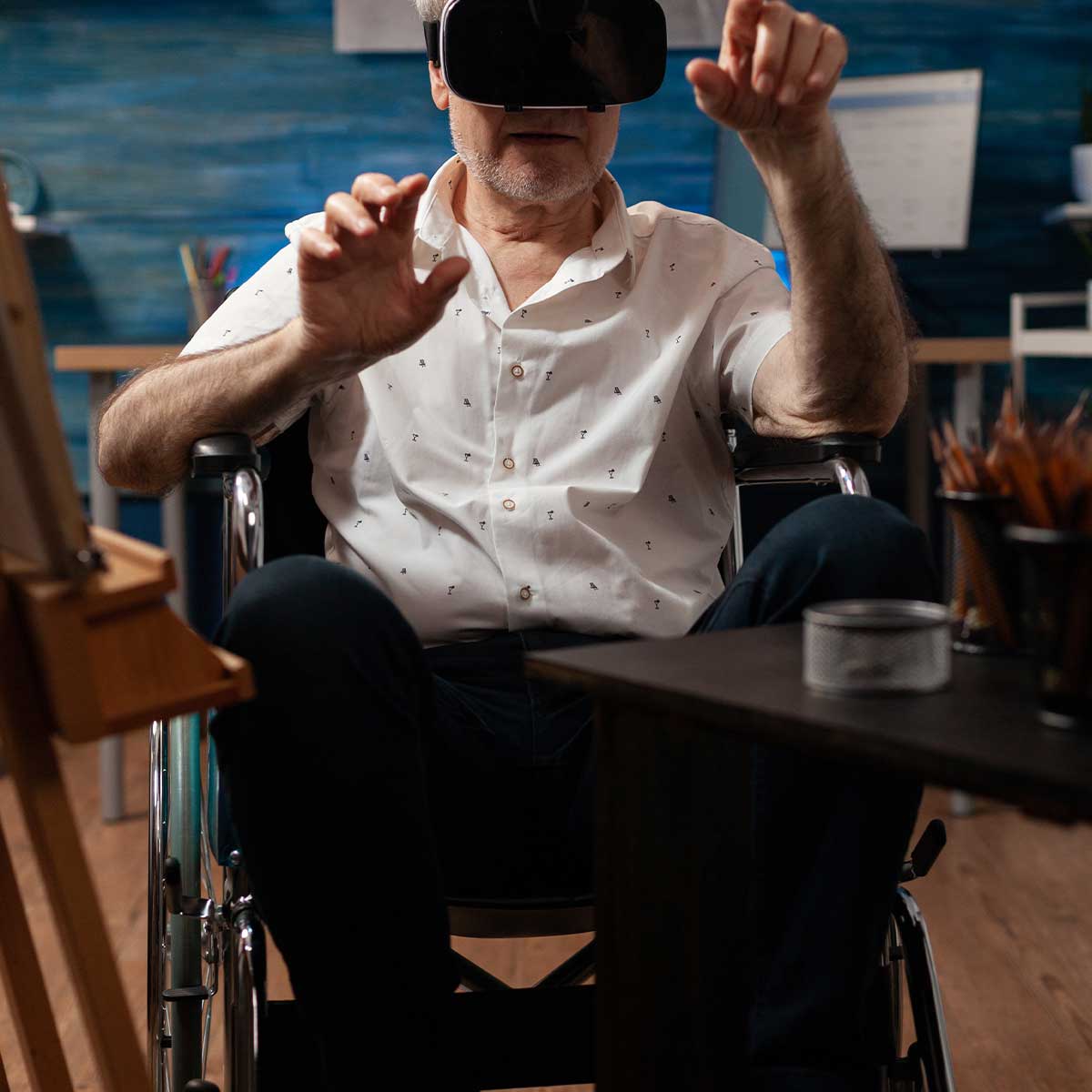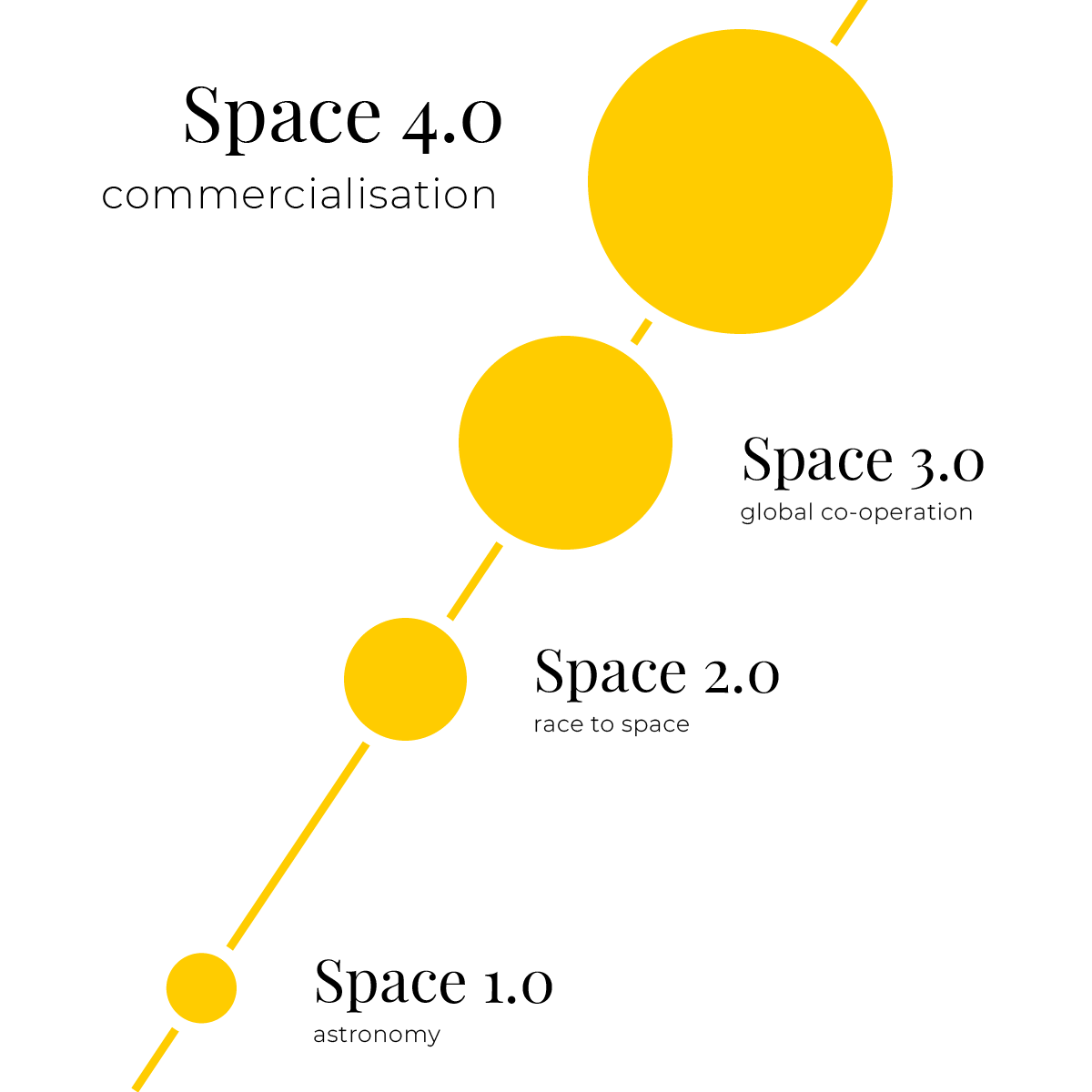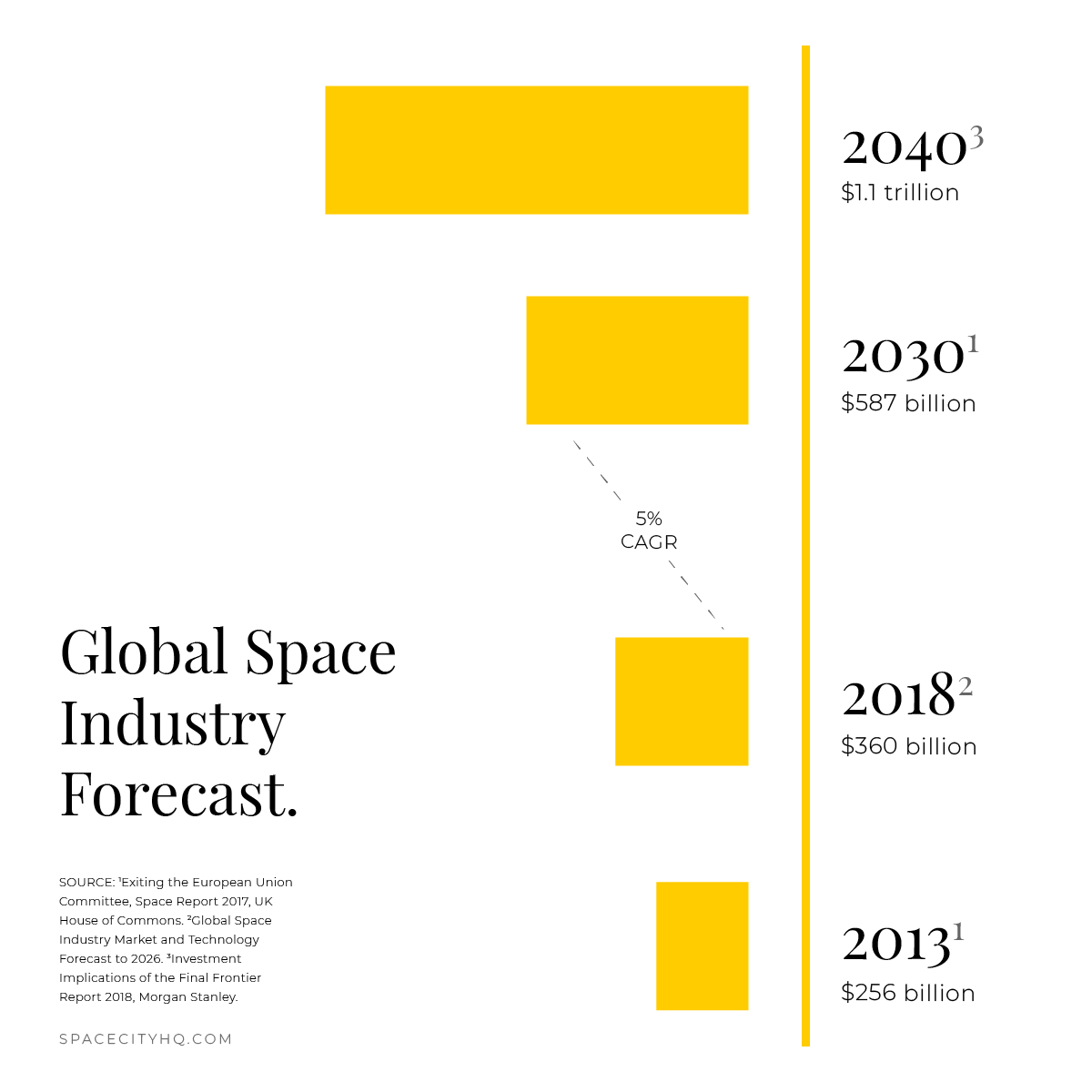


Space 4.0
There's so much more to space than rockets and astronauts. Like the Internet in the late 90's, space is an emerging industry on the brink of commercialisation and open to disruption. Someone needs to create the jobs of the future, why not you?
It's time for the knowledge economy.
Like the Internet 20 years ago, the space sector has become a competitive and lucrative industry. Never before has space been so accessible and integrated into our daily lives. This is the era of commercialisation, diversity, inclusion and rapid growth. The creation of knowledge-based jobs and peripheral support services, will unlock the full potential of the space industry and provides a unique opportunity to build an emerging industry sustainable, equal and responsible from the start.
Space is a gateway to explore potential on Earth in an uncertain future.

Humankind’s relationship with space began more than 2,000 years ago. Since the early Hellenic astrolabes of 220BC, people have used space to explore this planet, construct complex engineering, measure time, and used their knowledge of space and data to create jobs and contribute to local economic development. Space 4.0 is a new era in this long relationship with space. This is the time to encourage and enable creative thinking to identify the potential jobs of the future and provide support to individuals and organisations to explore their own potential in this emerging industry.
Small tech,big business.
Space 4.0 is emerging as one of the most lucrative industries globally. Cheaper, smaller, faster tech has created a surge of innovation, diversity and commercial growth – paving the way for smaller companies to innovate and disrupt the space industry – from anywhere in the world.
Scotland is a world leader in sustainable space technology.
50%
We’re on track to cut 50% of space industry emissions by 2030.
2045
Scottish space industry goal to achieve net zero emissions by 2045.
Up to 90% less carbon
is produced by green rocket fuels used by Scottish companies.
The world's first carbon-neutral space port
is in progress at Sutherland in the Scottish Highlands.
50% drop in space sector emissions
will be achieved by 2030 — with a goal to reach net zero by 2045.
Create the jobs of the future.
Many mainstream jobs today didn’t exist 10 years ago – the same is true for the next 10 years. The questions we ask today will help us create the jobs of tomorrow. How can we harness the power of data generated from space and apply it to practical applications on earth? How can we use law and ethics to control the risk of weaponising space? What can we learn about social impact and apply on Earth and throughout the universe? If the job you want doesn’t exist yet, create it yourself.
Law & Ethics
Who will create regulatory space legislation to deliver the promises of the terms agreed in the Outer Space Treaty (1967)? What frameworks exist to mitigate space debris and light pollution, and to avoid the exploitation of people and space as the sector advances? How will we govern behaviour in the absence of laws?
Social Impact
How can we avoid damaging this planet while exploring others? Can deep space logistics build sustainable supply chains that are people and planet friendly? Are arts & culture critical to humanity and colonisation of space? What does org culture look like in a decentralised workforce and how will this shape talent attraction and retention?
Finance
What will the currency of the future be and what financial structures will it need to be reliable, fair and credible? What regulatory landscape is required? Who will invest in creating the jobs of the future? How can profits contribute to local economic development as people move off-planet?


